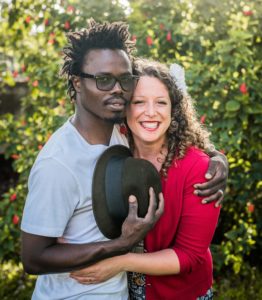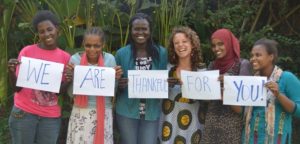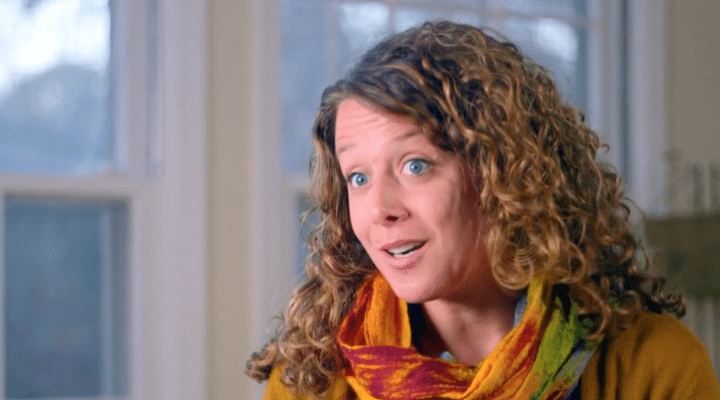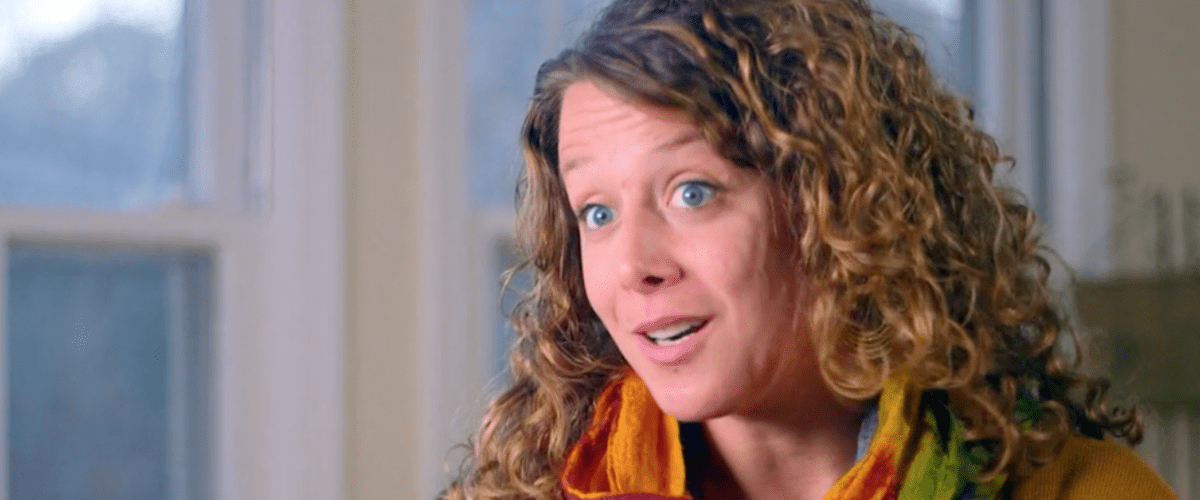Conversations on race and racial justice in the United States have become so polarized that too often these discussions result in people talking at one another, and an invisible distance is created between “the issue” and the humans affected. Today, I am asking you to take a step back and hear not from a political perspective, but from a human one.
The harsh reality that our Black and brown brothers and sisters face is that they are not safe living in the United states.
I studied the history of slavery and Jim Crow in college, I read about the experiences of African Americans and heard testimonies from friends about the challenges they faced. Although I cared deeply, reflecting back now, I realized now that I did not really understand.
That could have been my husband
 I began to understand the weight of this reality and fear when traveling in the U.S. with my Black husband. My husband is Ugandan. We met nine years ago while volunteering together. We connected around our passion for God, ministry and helping refugees. We fell in love, got married and have been serving and ministering alongside each other in Uganda the last seven years.
I began to understand the weight of this reality and fear when traveling in the U.S. with my Black husband. My husband is Ugandan. We met nine years ago while volunteering together. We connected around our passion for God, ministry and helping refugees. We fell in love, got married and have been serving and ministering alongside each other in Uganda the last seven years.
Four years ago, we were in the United States on a six-month fundraising assignment for our ministry and the Cooperative Baptist Fellowship. Just a few weeks after we arrived in the U.S., I saw something that would change my life.
It was a video of a white police officer shooting Philando Castile, a Black man pulled over for a traffic stop. In the car with him were his girlfriend, Diamond Reynolds, and her 4-year-old daughter. As a precaution, Castile volunteered to the officer that he had a handgun, which he was legally licensed to carry. But when Castile reached for his driver’s license, as instructed by the officer, the officer mistook the gesture as reaching for the handgun. The officer pulled out his own gun, shouted and shot seven times in rapid succession. He hit Castile with five shots, two through the heart, in front of Diamond and the little girl. Diamond Reynolds screamed in terror and immediately began livestreaming the event on Facebook. Castile died just minutes later.
That day, my entire worldview changed.
Although similar murders previously made me sad and angry, the harsh reality never had hit home in the way it did that day. I realized Philando Castile could have been my husband. My husband! A Black man with a very gentle, loving temperament, one of the most gracious people I know, and someone who only raises his voice when leading worship to ask the congregation to give a “shout to the Lord.” My husband, who is an incredibly gifted musician, producer and friend. That could have been my husband.
One evening in 2016, after we had been driving for hours on a return trip from Florida, our car broke down on the side of road just as the sun was setting. We were stuck at a busy intersection of three interstate highways. We were exhausted from a busy speaking schedule and still an hour away from our destination. Cars whizzed past us at more than 60 miles per hour. We tried to call the car rental company and friends in the area. And I prayed desperately, “God, please do not allow a police car to stop!” I would rather be stuck on the side of the road all night than take a chance that the officer might perceive my unarmed, loving, gentle, Black husband as a threat.
“I realized Philando Castile could have been my husband. My husband!”
Everything changes — everything — when violence or the threat of this violence comes to your friend, your family, your home, your husband, your child. Since the day I watched that video, I have felt fear and anxiety whenever we drive together in the U.S.
What Black people know that I didn’t know
For most of my life, I would have been happy for the police to stop and help me. As a white person with privilege, this fear of police had never crossed my mind. But with the growing number of Black people murdered by white officers, and no punishment for their crimes, this is a real fear and threat for Black people.
The fear and anxiety that I now experience for the safety of my husband during our short periods in the U.S. does not begin to compare to the levels of fear and anxiety that Black people too often feel for their children, parents, spouses, friends and themselves. As Americans, we must work diligently to create a society where all people are safe and without this fear.
As I reflect on this experience, I realize we, as Americans, have allowed racism and injustice to fester in our society, in part because of the distance we place between each other. This is compounded by the extent to which technology has replaced human interactions.
Whenever I return to the United States, I always go through culture shock because of the number of self-service checkout stations in stores or restaurants. It’s so weird to me that I can shop and not have any interaction with another human being.
Individualism leads to “othering”
One reason the injustice of racism is allowed to go on for so long is because, in American culture and power structures, Black people are viewed as “other” and “stranger.” The individualism and disconnection that grows each day becomes the breeding ground for “othering” — treating each other as something distant, apart from ourselves. This leaves little room to see truly the image of God in our neighbor.
As a white American who has lived in East Africa seven years, I believe Americans can learn a lot from African cultures. This is not a criticism but an observation speaking personally from the wisdom, hospitality and generosity I have learned from living in East Africa.
“Americans often don’t see the emotional and spiritual wealth of African communities.”
Africa is often portrayed by American churches, media and film as one-dimensional, poor and underdeveloped. It is true that there are many places where people are living in extreme physical poverty, and this causes much suffering. But what is not often talked about is Africa’s growing middle class, urbanization, vibrant entrepreneurial sector, fashion industry and warm and generous hospitality.
More importantly, Americans often don’t see the emotional and spiritual wealth of African communities, even among people living in extreme physical poverty. This wealth is nurtured by the extremely communal nature of many African cultures.
The power of ubuntu
Throughout my time living and traveling in East Africa, I have witnessed the presence of ubuntu, a dimension of humanity that is ingrained in many African cultures and taking various forms. Desmond Tutu describes ubuntu this way: “You cannot be human on your own. You are human through relationship. You become human. We were made for complementarity.”
In ubuntu there is a deep understanding that each person is created in the image of God. In our community in Uganda, the word “stranger” is almost a foreign concept.
My husband explains: “It’s only when a person comes in and tries to do harm or force their ideas onto the community that the person would be placed in the category of ‘stranger.’” The word “stranger” is a defense mechanism to keep the other person and community at a distance out of fear.
 Here, the concept of family is not confined to one’s immediate home but often extends to the larger community. At our ministry center, it is often hard for our social workers to discern actual biological family structures because culturally it is common to identify cousins or close friends as sisters or brothers. An older adult who is a friend, mentor or just a respected person may be identified as an aunt, uncle, mother or father.
Here, the concept of family is not confined to one’s immediate home but often extends to the larger community. At our ministry center, it is often hard for our social workers to discern actual biological family structures because culturally it is common to identify cousins or close friends as sisters or brothers. An older adult who is a friend, mentor or just a respected person may be identified as an aunt, uncle, mother or father.
In many East African cultures, if visitors or neighbors come to your door, it is important to properly welcome them with warm and generous hospitality. Visitors often come unannounced and at all times of the day. Even if a family does not have any food in their home, they will offer their visitor water as a sign of respect and acknowledgement of their imago Dei.
During the three-month-long COVID lockdown in Uganda, when people were out of work, without food and unable to travel, even people in dire situations themselves helped one another. If one person didn’t have food, they were invited to share their neighbor’s meal.
It’s time to listen, see and learn
These lessons are even more important for white Americans to learn. Our unearned privilege often prevents us from seeing and hearing our Black neighbors, brothers and sisters. Even if we don’t ask for our white privilege, even if we are not conscious of it, it is there.
It’s time to begin seeing these murders of Black and brown Americans through the lens of God, to see the imago Dei in these brothers and sisters. Now is the time to stop. Listen. Hear. See. Now is the time to unlearn and relearn.
There is an African proverb that says: “If you want to go fast, go alone. But if you want to go far, go together.”
The truth is clear. In order finally to dismantle the oppressive systems of racial injustice in America, we must do it together. It’s not going to be fast. It’s not going to be easy. But it needs to happen.
Finally, it is time that our Black and brown brothers and sisters have the real opportunity to live as God created them to live: To be loved, respected and to live fully into God’s gifting and purpose for this world.
Missy Ward-Angalla serves as the founder and executive director of Amani Sasa and field personnel with the Cooperative Baptist Fellowship in Kampala, Uganda. Amani Sasa ministers among vulnerable refugees by offering safety, wholeness and empowerment. Missy is a graduate of Wesleyan College and McAfee School of Theology, where she studied Christian social ethics.


